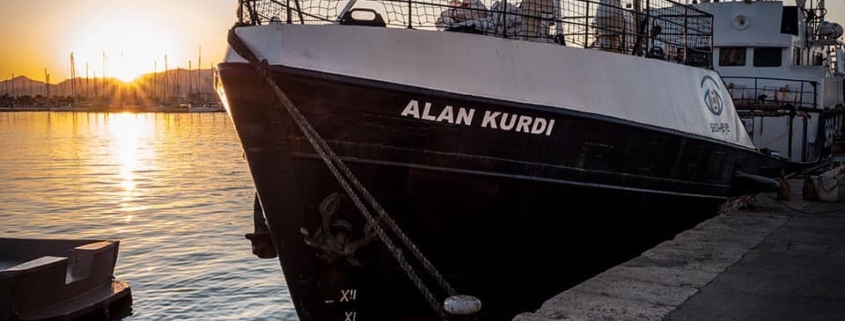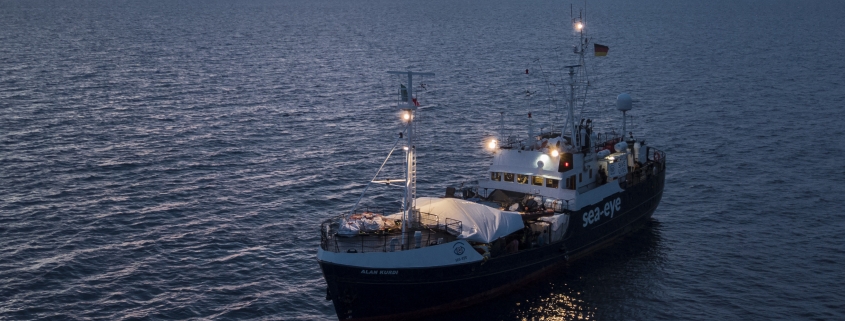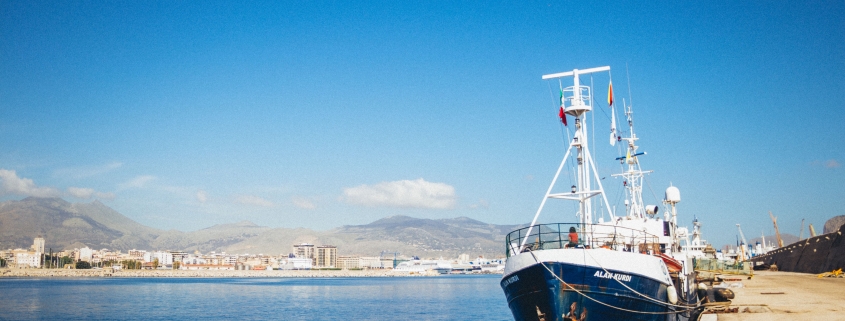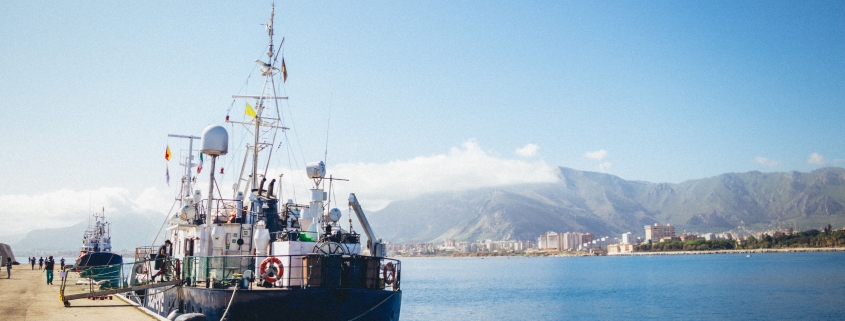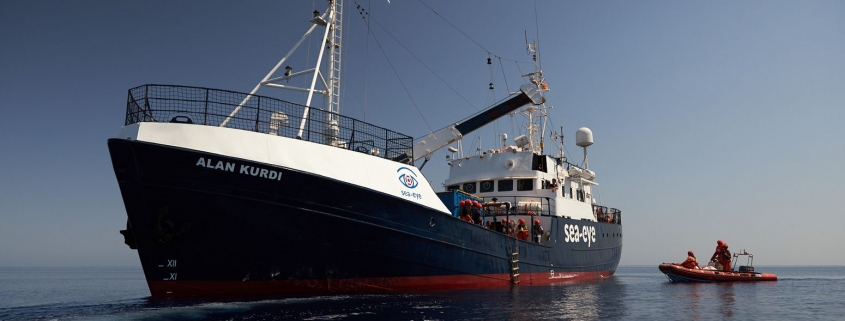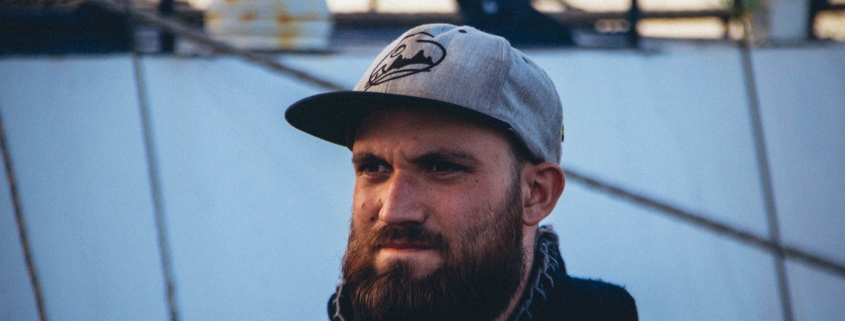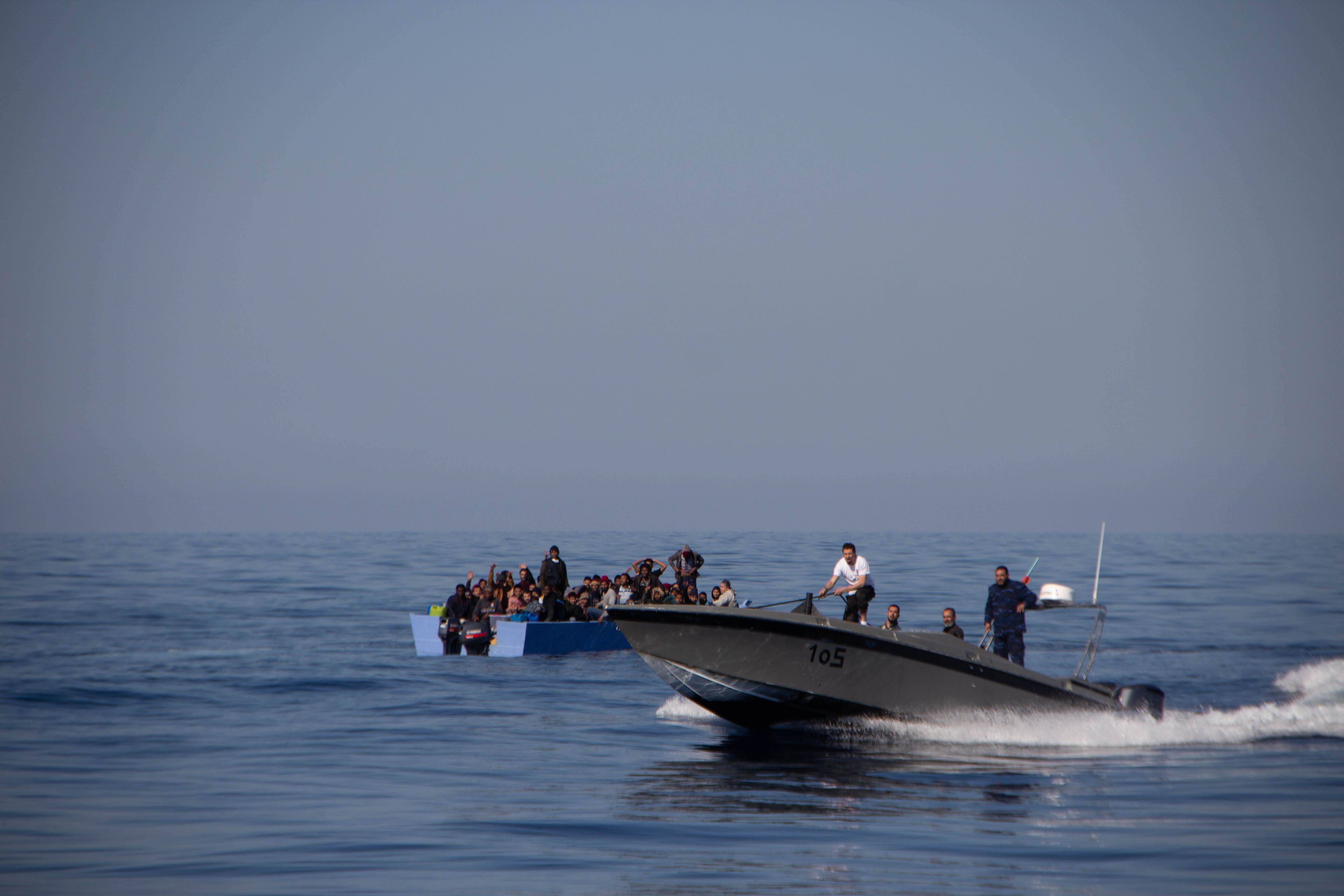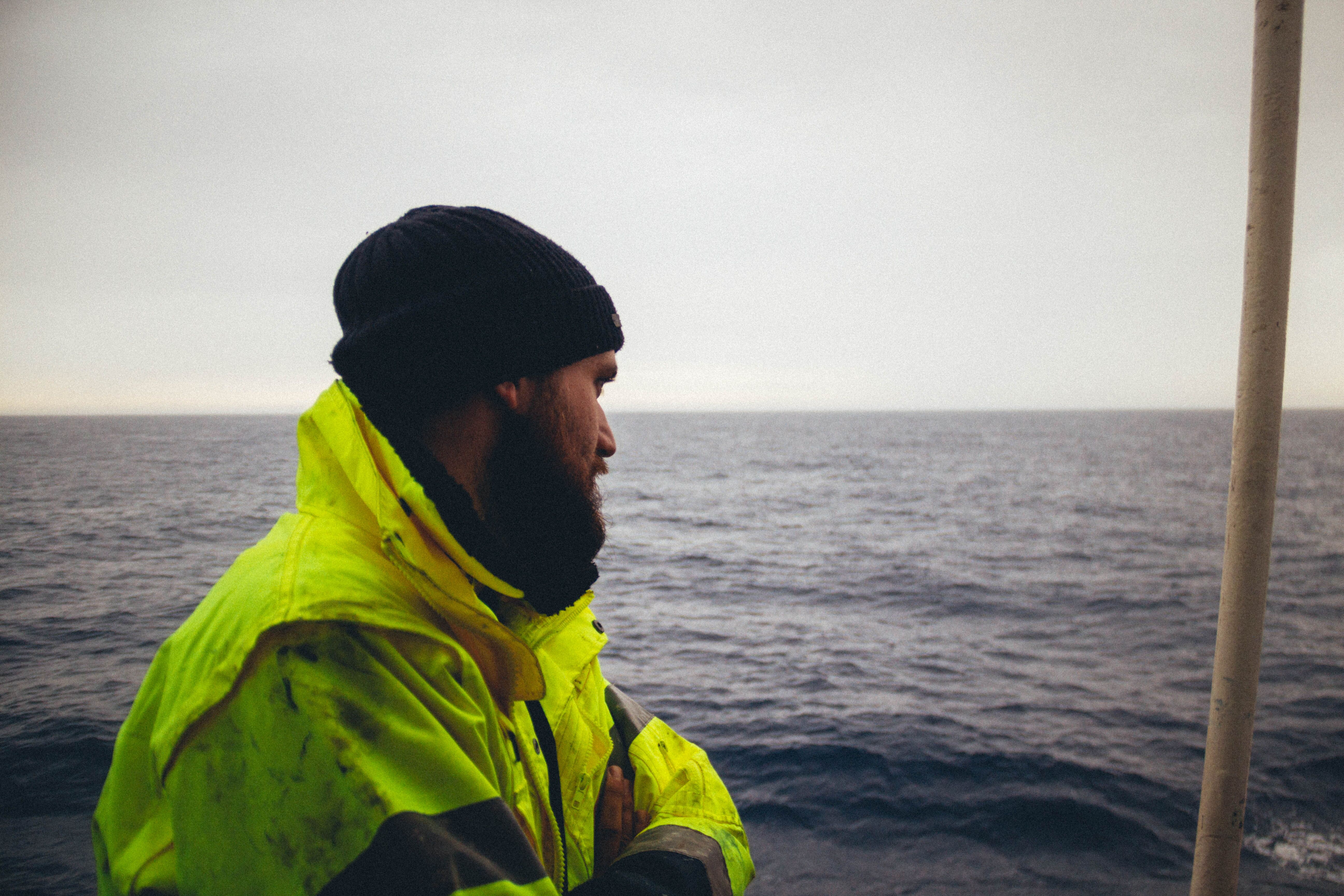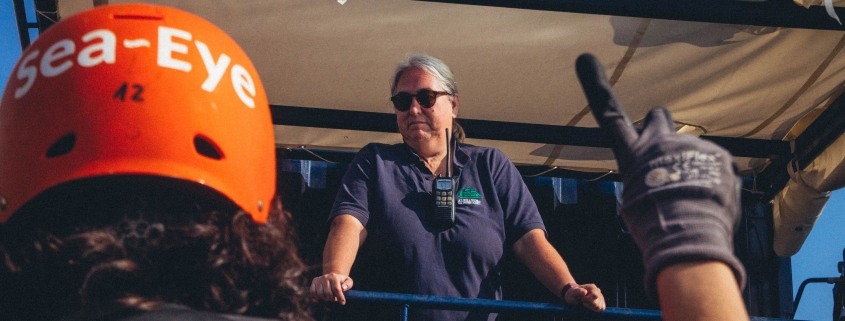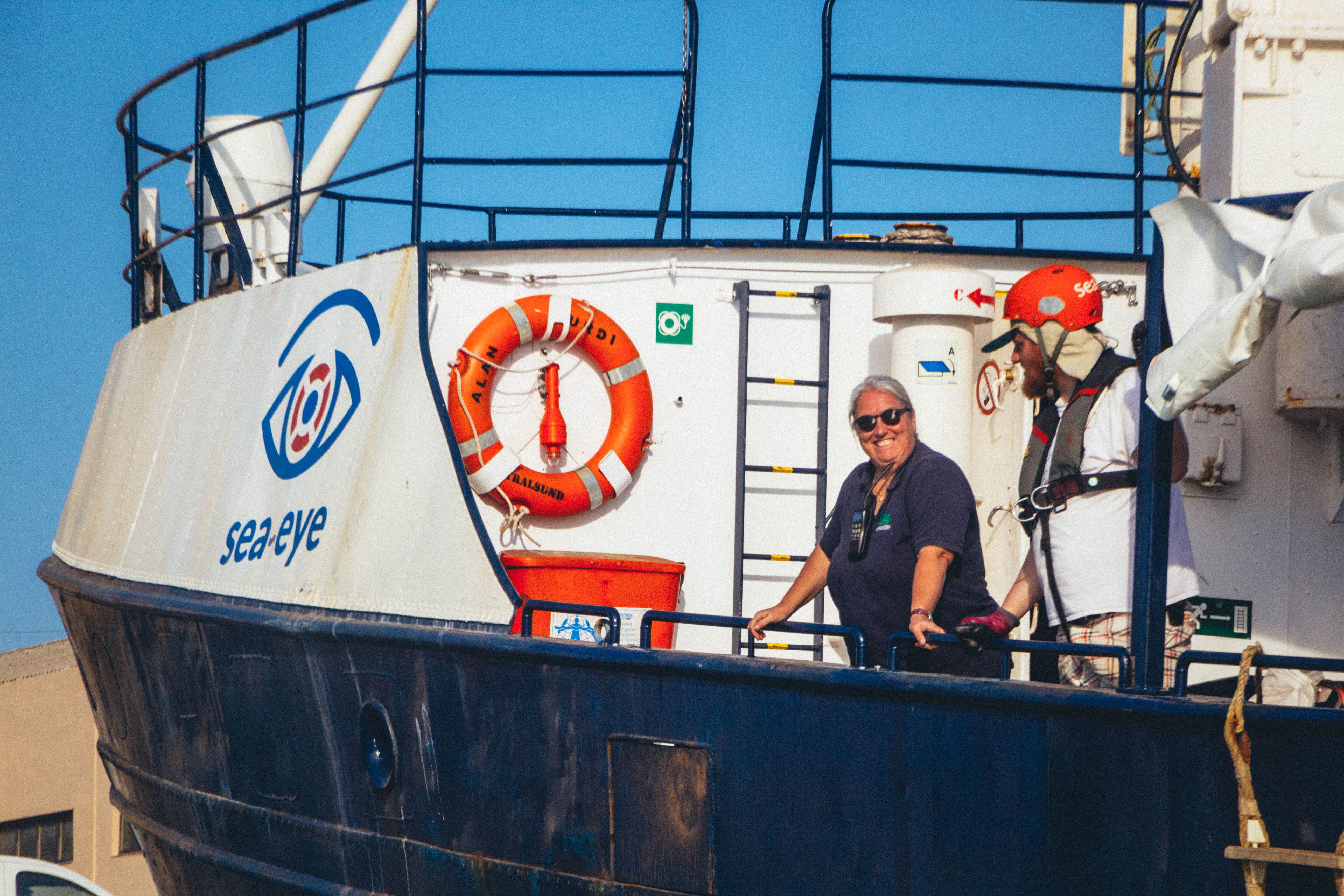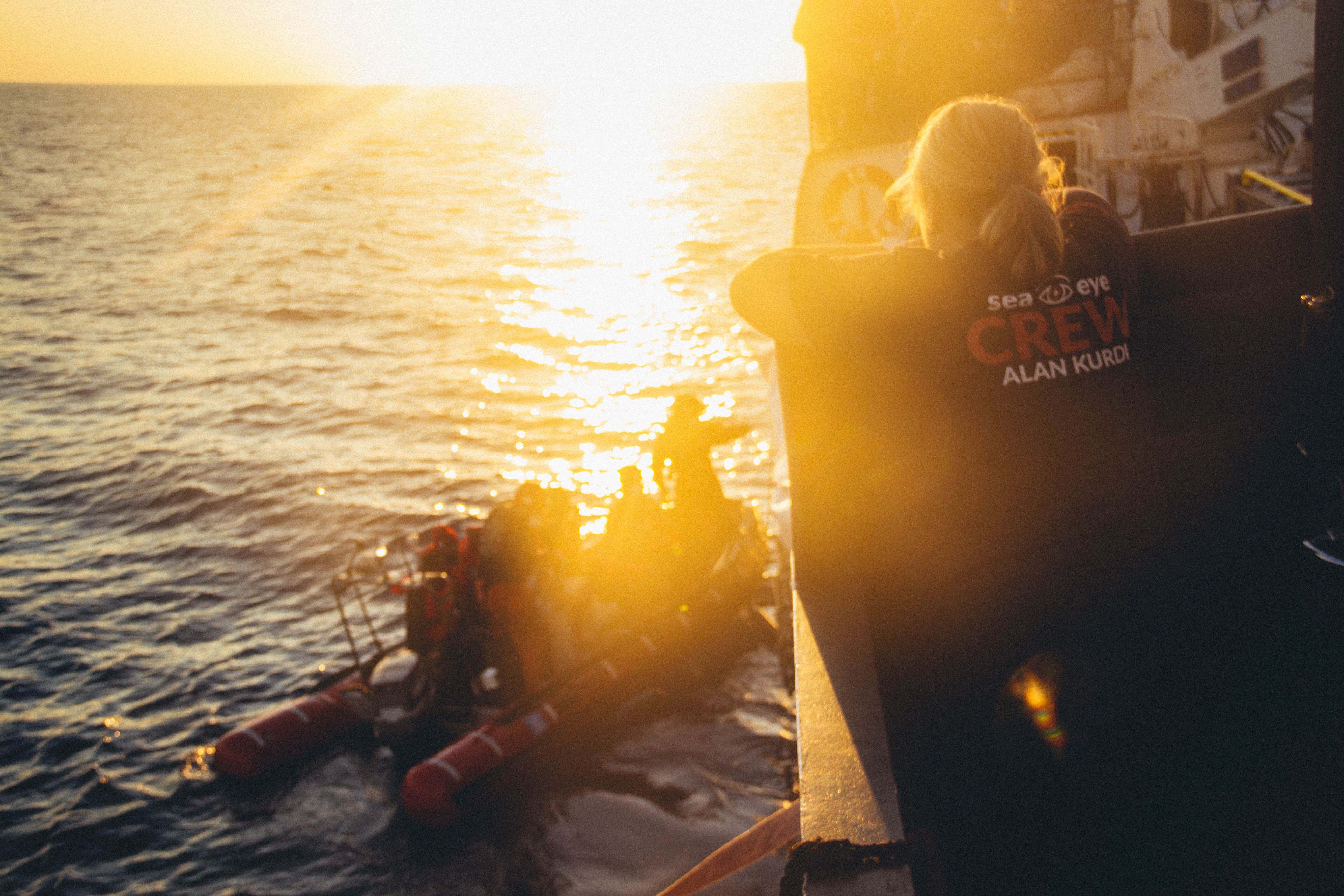Numerous emergencies at sea in international waters
- ALAN KURDI crew rescues 114 people from two boats
- So-called Libyan Coast Guard also involved in sea emergencies
- Sea-Eye signs purchase agreement for rescue ship GHALIB KURDI
On Saturday afternoon, the ALAN KURDI crew rescued a total of 114 people from two different boats. At 11:45 a.m., the ship’s watch first sighted an overloaded rubber dinghy, carrying 90 people. Captain Joachim Ebeling immediately informed the German and Libyan authorities. The people on the rubber boat reported about other boats with people who had fled Libya.
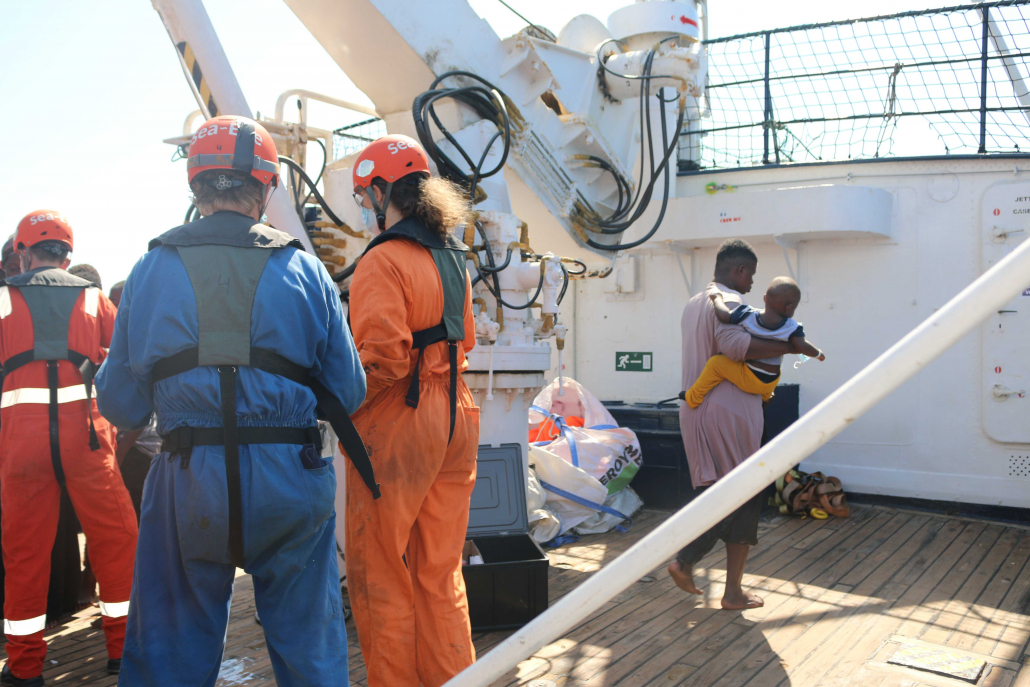
Hence, immediately after the first rescue, a smaller, overcrowded fishing boat with 24 people calling for help was spotted as well. All of the 114 people, including eight women and eight children, are now aboard the ALAN KURDI. Four people are currently being cared for in the ship’s hospital ward, including a pregnant woman and a man with severe circulatory problems. One of the women and one man are being treated for lacerations.
“For fear of being dragged back by Libyan militias, these people did not send a distress call for help. This was an enormous risk and they were extremely lucky that our ship’s watch spotted them with their binoculars,” says Gorden Isler, Chairman of Sea-Eye e. V.
So-called Libyan Coast Guard also involved in sea emergencies
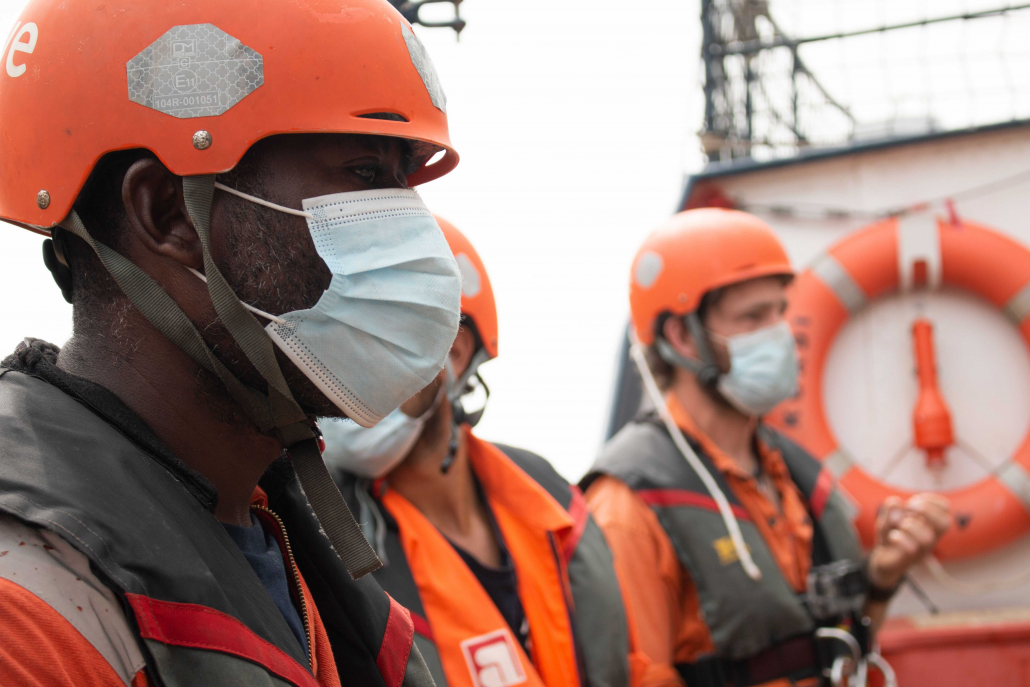
Shortly after the second rescue operation, the so-called Libyan coast guard approached at high speed. The Libyan patrol boat was itself involved in a distress call at sea and was completely overloaded as a result. The Libyans did not contact the ALAN KURDI, took the empty fishing boat and turned towards Libya. Neither the Libyan authorities nor the European rescue coordination centers responded to the emergency calls from ALAN KURDI by phone or email.
“In the meantime, all communication with aid organizations has ceased and nobody in Europe views themselves as responsible for these people anymore. They are being handed over to the Libyans or the sea. But they are now on a German ship and are finally being treated like humans again,” says Jan Ribbeck from Sea-Eye’s operations management team.
Sea-Eye signs purchase agreement for rescue ship GHALIB KURDI
On Thursday evening Sea-Eye signed the purchase contract for the new, larger rescue ship, which will be named GHALIB KURDI. The organization had already announced this on September 1st at a press conference in Regensburg. Which ship Sea-Eye has selected will remain confidential. It is solely a matter of risk management.
“There are some modifications to be made. We are simply concerned about the safety of our volunteers and the safety of the previous owner,” says Isler.
When Sea-Eye took over the former German research vessel PROFESSOR ALBRECHT PENCK (today’s ALAN KURDI), they also did not disclose the name of the vessel until it could safely go on its first mission.
“We will equip the ship as fast as possible and then present it together with our new cooperation partners, with whom we will then set off on joint missions,” Isler continues.

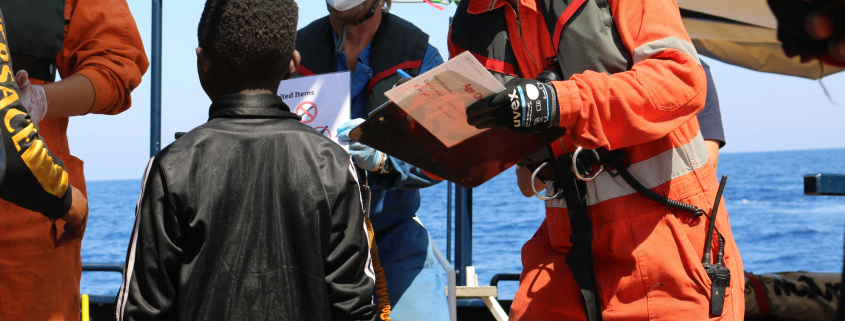
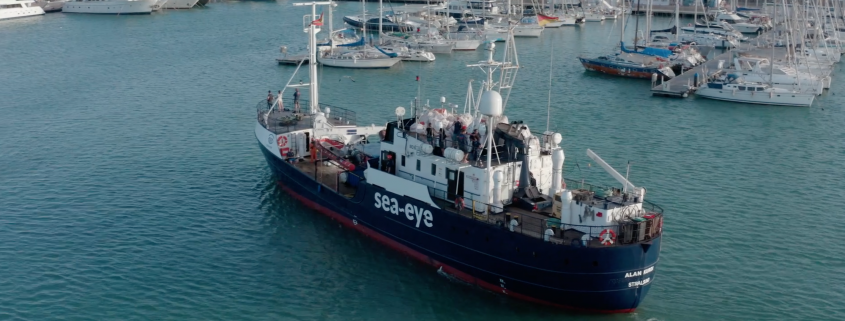
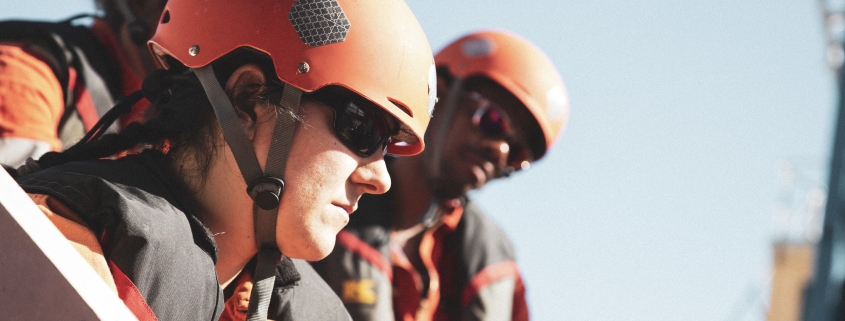 © Karsten Jäger/sea-eye.org
© Karsten Jäger/sea-eye.org